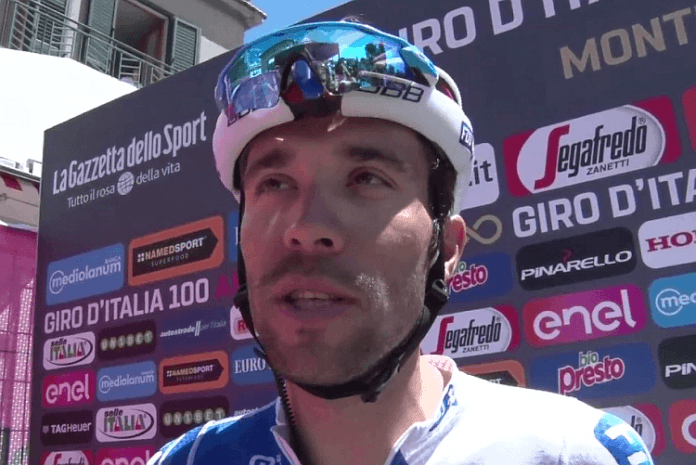The Pan American Games open in Lima (PER) on 26 July and the track & field competition will start on 6 August. But an error in the USA Track & Field selection procedures document has created chaos, with nine athletes successfully challenging the federation’s team as named on 24 June.
The situation unfolded this way:
(1) Because the IAAF World Championships for 2019 are in Doha (QAT), the dates were pushed back to 28 September-6 October, to avoid the worst of the summer heat in the Middle East. USA Track & Field therefore moved its National Championships, used to select the Worlds team, back to 25-28 July, instead of the usual June dates.
(2) The USATF Champs dates in July, however, are too late to serve as a selection meet for the 2019 Pan American Games, which will already have started, so a selection procedure is necessary.
(3) USA Track & Field, working in conjunction with its Athlete Advisory Council, developed a selection process that would select athletes for the Pan Am Games team based on the list of best marks from 1 January 2018 through 10 June 2019. This was presented to athletes at the USATF Annual Meeting last December and in other communications.
(4) However, the selection procedures document posted by USATF on its Web site stated that the selection of athletes for the Pan Am Games would be made based on the list of best marks – indoor and outdoor combined – from 1 January-10 June of 2019, not including the 2018 marks at all. What happened? Someone in the USATF office made a mistake.
A series of communications went out after the 10 June 2019 deadline to ask athletes on the list for each event if they wanted to be on the Pan Am Games team, and the team was named in the news release of 24 June.
That’s when the trouble started.
Three athletes – Benard Keter, Frankline Tonui and Lawi Lalang – filed a complaint on 25 June, insisting that on the basis of the published selection procedures that they should be named to the Pan Am Games team, with reference to marks achieved only in 2019.
The matter went to arbitration and the decision, announced on 2 July, that because the posted selection procedures specified 2019 marks only, that Keter and Tonui must be named to the U.S. Pan Am Games team in the men’s 3,000 m Steeplechase (instead of the announced Jordan Mann and Isaac Updike) and that Lalang be selected for the 5,000 m and/or 10,000 m as eligible, replacing one of the athletes named on he 24 June release (Riley Masters and Shadrack Kipchirchir in the 5,000 m and Garrett Heath and Reid Buchanan in the 10,000 m).
Four days later, another claim on the same basis was made for six more athletes:
● Olayinka Awotunde, men’s Shot Put (vs. Curtis Jensen, named to the team)
● Josef Tessima, men’s 5,000 m (vs. Riley Masters and Shadrack Kipchirchir)
● Marisa Howard, women’s 3,000 m Steeplechase (vs. Mel Lawrence)
● Tynita Townsend, women’s High Jump (vs. Inika McPherson and Logan Boss)
● Kelly McKee, women’s Triple Jump (vs. Imani Oliver)
● Annie Kunz, women’s Heptathlon (vs. Allison Halverson)
The hearing was held on 17 July and the decision came down today (19th). The arbitrator held that once again, the complaining athletes should be named to the Pan Am Games team, for the same reasons.
But, these decisions come so late that it may not be possible to get these six athletes actually entered in the Pan Am Games. So, the award specifies that:
“[I]n the event the [Pan Am Games organizing committee] does not allow the athletes selected in accordance with this Final Arbitration Award to compete in the Games and/or the United States will lose one (1) or more opportunities to compete in a specific track and field event as a results of this Final Arbitration Award, the athlete(s) currently selected in the specific track and field event(s) affected is permitted to compete in the Games representing the United States.”
What a mess.
As the decision came down today, it’s unknown whether the Lima organizers will accept these changes from USATF, via the U.S. Olympic and Paralympic Committee. But in view of this week’s Borders Commission report, it’s worthwhile to note the timetables of these two appeals of athlete selection:
● Keter, et al vs. USATF: filed 25 June, decided 2 July ~ in 7 days
● Awotunde, et al vs. USATF: filed 6 July, decided 19 July ~ in 13 days
The Keter proceeding was acknowledged to be rushed because of the entry deadline; there was a full hearing in the Awotunde case. So this is instructive for the USOPC and the National Governing Bodies in their decisions on when to hold selection events vis-a-is entry deadlines for major championships and Games.
In the meantime, a dozen athletes are now wondering whether they will be competing in Lima or not; that will be up to the Pan Am organizers, who must be wondering why the United States can’t get its act together.

























